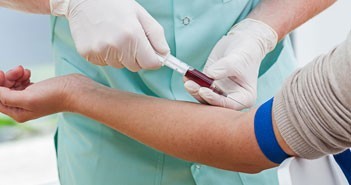TRUE-AHF is latest CRO-led international clinical trial reported to lack integrity

A post analysis study on the recent heart failure clinical trial, TRUE-AHF, has revealed that 17% of 358 participants were ineligible for the trial in question. Clinical trial investigators have now raised major concerns for the integrity of large international clinical trials and have called for major overhauls.
At the Heart Failure 2017 conference (29 April–2 May, Paris, France), Milton Packer, Baylor University Medical Center (TX, USA), presented findings that there was a high proportion of ineligible participants from Eastern Europe. Packer stated that the ineligible patients “had violated one or more stability or safety criteria that had been specifically created in order to discern the efficacy or minimize the risks of the study drug”.
Although these results do not affect the main outcomes of this particular clinical trial, its significance lies in the fact these findings came to light in the wake of correspondence published in New England Journal of Medicine. This study presented compelling evidence that another international clinical trial, TOPCAT, had been compromised owing to clinical trial misconduct.
Analysis of the TRUE-AHF trial revealed that the active metabolite for the drug being tested was virtually undetectable for 30% of patients from Russia and Georgia, in comparison to 3% of patients from the USA and Canada. These results suggested that patients from Russia and Georgia weren’t even administered the drug the trial was testing.
During his talk, Packer stressed that “the problem is not Eastern Europe; the problem is a lack of investigator oversight. The procedures currently in place to maintain quality control at investigative sites are not adequate. In many cases, contract research organizations are not doing the job they need to do make sure that the right patients are being enrolled in large-scale clinical trials, and they resist guidance and pressure from the trial leadership to fulfill their responsibility.”
Commenting on the matter, Sanjay Kaul, Cedars-Sanai Medical Centre (CA, USA) explained that “while globalization of clinical trial research is a positive step, proper vigilance is key in ensuring findings from such trials can be relied upon for accurate regulatory and clinical decisions.”
This sentiment was reflected in a statement from Bob Harrington, Stanford University (CA, USA). Discussing the problem, he explained that “as [CROs] became massive corporate conglomerates, they increasingly focused on squeezing monies out of the research process, including by pushing international site participation. The commercial CROs don’t actually do research, they sell research services and as such they don’t actually have a lot invested in quality research.”
He went on to speculate that “one could argue that they haven’t cared so much about quality because they make a lot of money selling and providing things like monitoring services.”
Addressing how to avoid this problem, Packer concluded: “We need to create a new model where the principles and practices of trial oversight are directly responsive and accountable to the trial leadership.”
Sources: 2017 Heart Failure conference (29 April–2 May, Paris, France);www.escardio.org/Congresses-&-Events/Heart-Failure/Congress-resources/diving-deeply-into-true-ahf-will-review-value-of-eligibly-criteria; www.cardiobrief.org/2017/04/29/as-another-trial-goes-bust-investigators-call-for-major-changes-in-international-trials/#comments;
